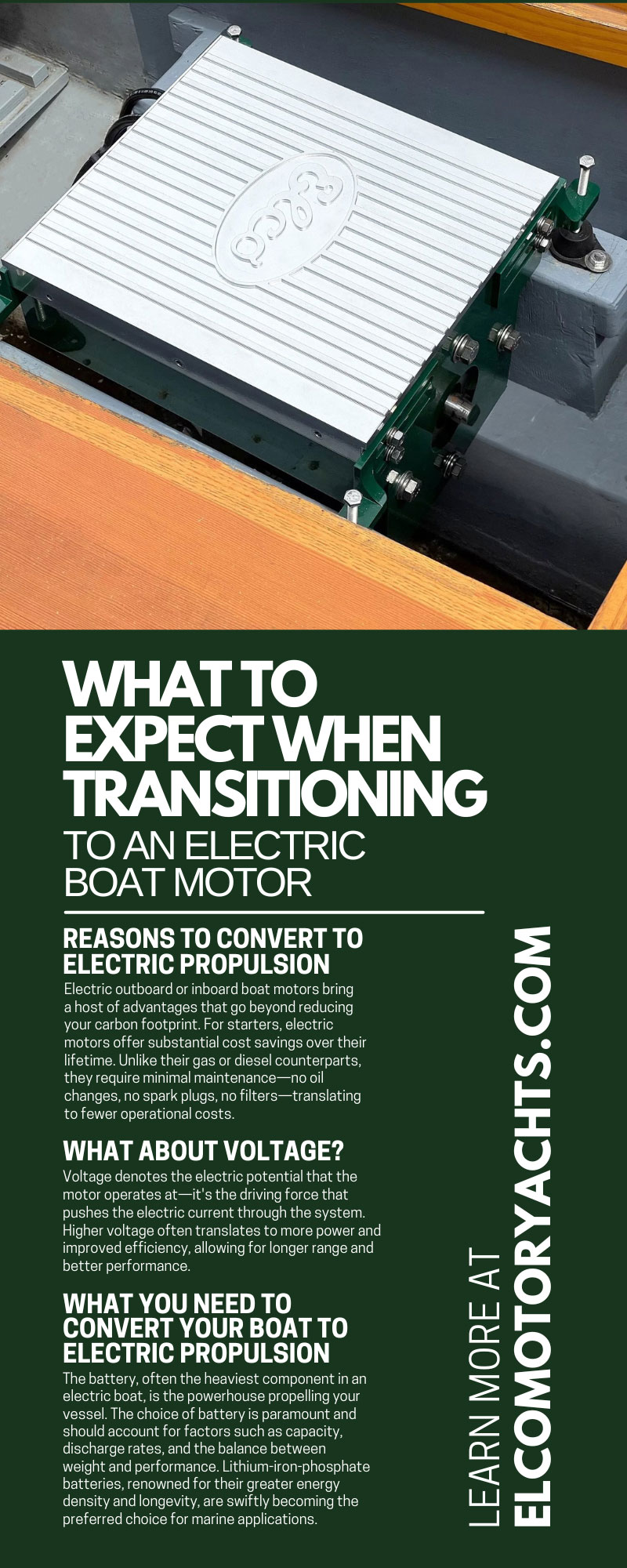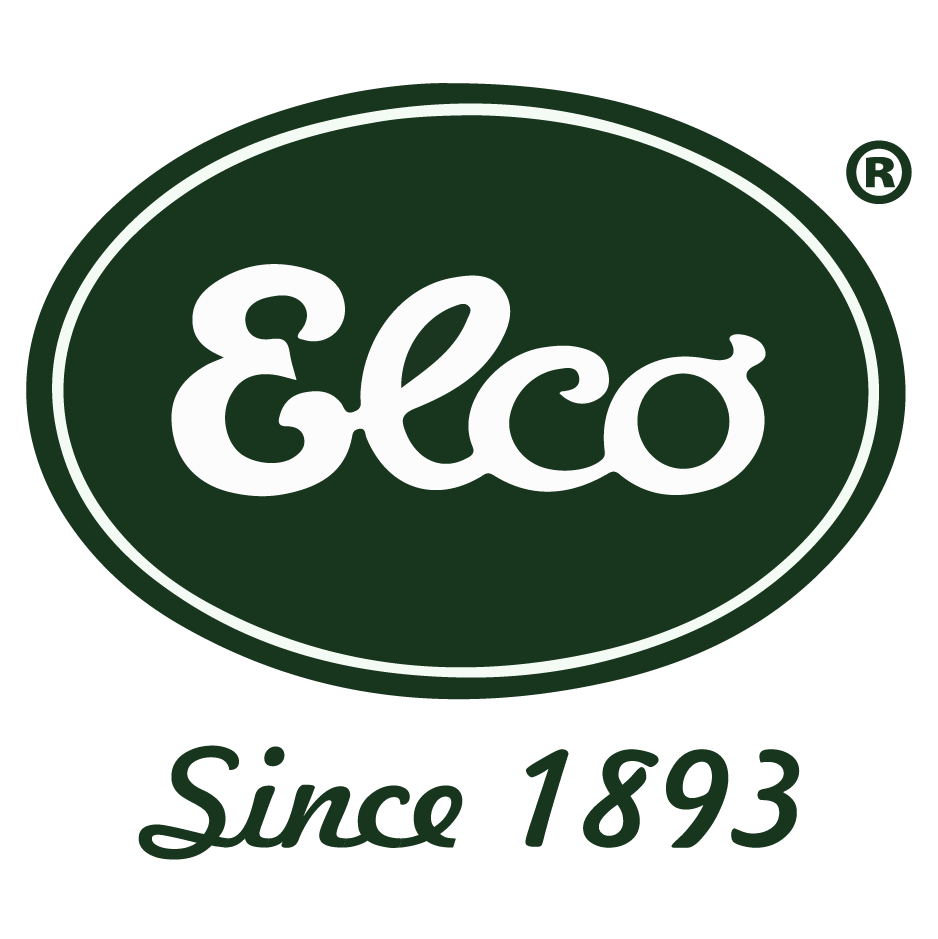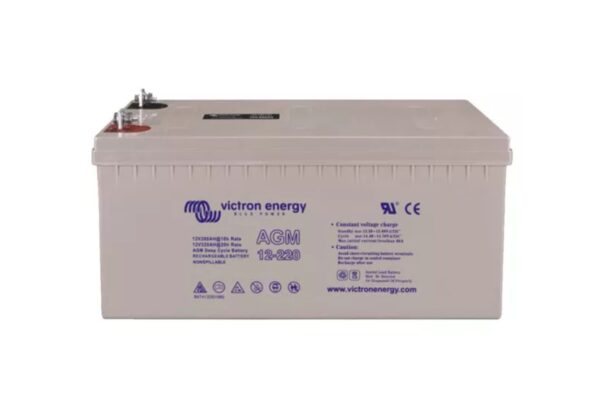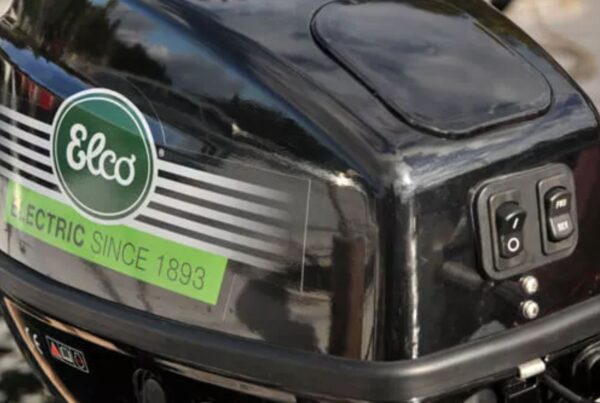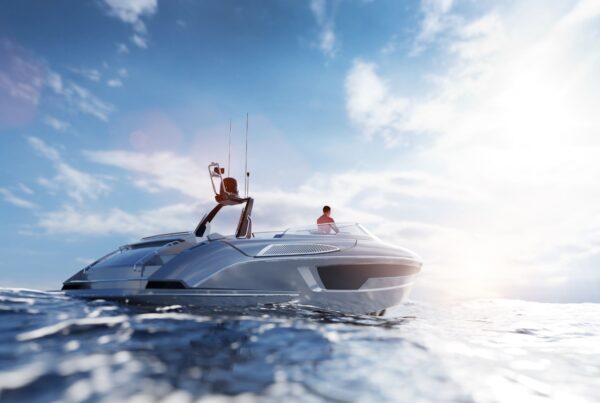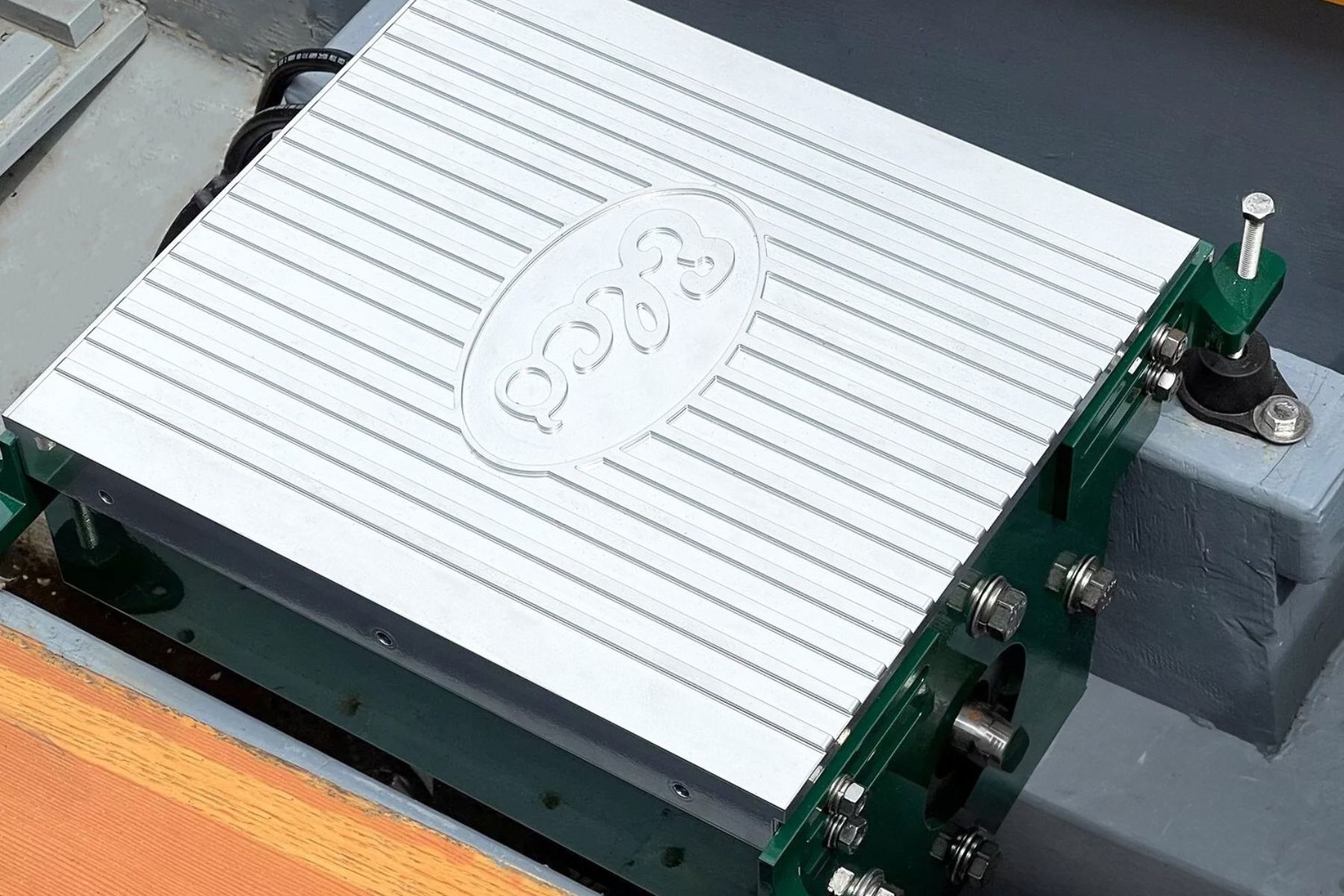
Many boat owners have long relied on the traditional hum of gas and diesel marine engines. However, a new era beckons in the transition toward a more sustainable future. Electric boat motors offer not only a quieter, cleaner boating experience but also innovation in sustainability.
Tracing back to our roots in the 1893 Chicago World’s Fair, Elco Motor Yachts is the pioneer in marine propulsion. We invite you to learn more about what to expect when transitioning to an electric boat motor.
Reasons To Convert to Electric Propulsion
Electric outboard or inboard boat motors bring a host of advantages that go beyond reducing your carbon footprint. For starters, electric motors offer substantial cost savings over their lifetime. Unlike their gas or diesel counterparts, they require minimal maintenance—no oil changes, no spark plugs, no filters—translating to fewer operational costs.
Furthermore, electric motors are famed for their efficiency, converting up to 96 percent of electrical energy into propulsion power. Gas- or diesel-powered motors, on the other hand, lose a great deal of their energy as heat. Embracing electric propulsion eliminates most of the noise and vibrations that are synonymous with traditional boat engines.
Plus, electric boat motors are quiet. At full speeds, they’re about half as loud as a traditional boat motor, and they’re incredibly quiet at slower speeds. Quieter motors make for more enjoyable boating.
Most importantly, transitioning to electric boat motors means saying goodbye to exhaust fumes, oil leaks, and carbon emissions, making it not just an economical choice but a sustainable one.
Understanding Electric Motor Power: Watts, Kilowatts, and Horsepower
Traditional boat motor power is quantified using horsepower (hp), a unit founded in the age of steam engines. One horsepower was defined as the power needed to move 550 pounds one foot in one second. When electric motors came along, horsepower was converted to watts. To fully grasp the potency of electric propulsion, it’s essential to understand how to convert these units.
One horsepower is approximately equivalent to 746 watts. By dividing the wattage of an electric motor by 746, you can estimate its horsepower equivalent. For instance, a 10,000-watt (or 10 kW) motor would be roughly equivalent to 13.4 hp (10,000 ÷ 746 = 13.4). It’s important to remember that this is a mere conversion, and actual performance can vary based on efficiency and other factors.
What About Voltage?
Voltage denotes the electric potential that the motor operates at—it’s the driving force that pushes the electric current through the system. Higher voltage often translates to more power and improved efficiency, allowing for longer range and better performance.
For instance, a 48-volt motor might be suitable for smaller crafts or leisurely cruises, while a robust 96-volt system could equip larger vessels for more demanding seafaring adventures.
Inboard vs. Outboard Electric Boat Motors
Electric outboard motors, like their gas- or diesel-fueled counterparts, are mounted on the outside of the boat at the stern, visible and directly immersed in the water. They serve as the helm of the vessel, combining propulsion and steering in a single unit. This configuration is often favored for smaller craft due to its ease of maintenance, improved maneuverability, and the freed-up space within the boat.
Inboard electric motors are located within the vessel, typically placed at the boat’s center of gravity to maintain balance. The propeller is connected to the motor via a driveshaft that pierces the hull, delivering power directly to the propeller in the water. Preferred for larger vessels, inboard motors provide a lower center of gravity, improving stability and creating a smoother ride in rougher waters.
What You Need To Convert Your Boat to Electric Propulsion
Converting your vessel to electric propulsion requires more than an electric motor. It requires an assembly of components working in harmony, from batteries and throttles to charge monitors and the necessary accessories to connect the motor and battery to your boat.
The battery, often the heaviest component in an electric boat, is the powerhouse propelling your vessel. The choice of battery is paramount and should account for factors such as capacity, discharge rates, and the balance between weight and performance. Lithium-iron-phosphate batteries, renowned for their greater energy density and longevity, are swiftly becoming the preferred choice for marine applications.
However, absorbent glass mat (AGM) batteries are another viable and affordable choice. Be advised, however, that if you are converting from a conventional lead acid battery, you may need additional cables or a connection kit to connect an AGM battery.
Elco offers electric outboard motors with the option to choose a short or long shaft tiller throttle or a remote throttle mounted at the side or on top. You may also want a battery monitor that tells you how much charge is remaining.
Our inboard electric motors feature a plug-and-play design that makes it easy to switch out an old diesel motor and mount the electric inboard in just a few steps. We supply electric inboard boat motor conversion kits and additional accessories such as motor mounts and couplers, plus compatible chargers for the inboard’s battery, to make your conversion smooth and successful.
Elco Motor Yachts has always been at the helm of electric boat design and motor innovation, steering the marine industry toward a more sustainable future. Our commitment to creating a cleaner, quieter, and more cost-effective boating experience is deeply rooted in our heritage, powered by our relentless passion for electric boating.
We’ve harnessed over a century of expertise to offer you the pinnacle of electric boat motors—efficient, quiet, reliable, and crafted with meticulous attention to detail. Make the decision to convert your boat to electric propulsion and enjoy a more peaceful and environmentally responsible boating experience.
If you’re not sure which electric boat motor is right for your vessel, call us at 877-411-3526 or email info@elcomotoryachts.com to discuss your needs. You can also find your motor online by answering a few simple questions. We look forward to supplying you with everything you need to make the transition away from fossil-fuel-powered motors so that you can enjoy clean, quiet days on the water.
